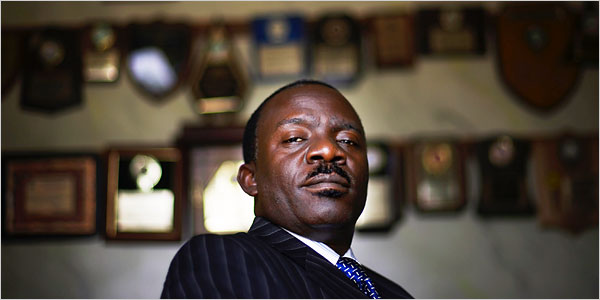by Femi Falana
Until a fortnight ago, the Ministry of Defense had no substantive minister for over 22 months. Erelu Olusola Obada, a Minister of State for defense was directed by President Goodluck Jonathan to superintend the defense ministry for over a year. And when she was relieved of her post in a cabinet reshuffle last year the Information Minister, Labaran Maku was saddled with the responsibility of supervising the Ministry of Defense.
It is on record that both Mrs. Obada and Mr. Labaran Maku allowed the Chief of Defense Staff to operate as the de facto Minister of Defense. Under the arrangement the Chief of Defense Staff had direct access to the President. But with the rising onslaught of the Boko Haram sect in the north east zone of the country President Jonathan was recently compelled to appoint a substantive Minister of Defense in the person of General Mohammed Gusau, a retired general and a former National Security Adviser.
READ: UPDATE: Defence Minister Aliyu Gusau Denies Sahara Reporters’ Report Of His Resignation
The new minister assumed duty last week and was reported to have summoned a meeting of the service chiefs to review the state of the war on terror. To the embarrassment of the Minister the Service Chiefs were said to have nominated the Chief of Defense Staff to represent them at the meeting. As if that was not enough the Chief of Defense Staff, Air Vice Marshall Alex Badeh was alleged to have made it clear to the Minister that he could only relate with the service chiefs through his office.
Infuriated by what was considered as an act of insubordination on the part of the Chief of Defense Staff the Minister threatened to resign from the Jonathan Administration. Although the Ministry of Defense promptly denied the rumored resignation of the Minister the crisis has brought to the fore the refusal of the military establishment to subject itself to civil authorities under a democratic dispensation.
Since the military had ruled the country for close to three decades serving military officers have a penchant for treating civil authorities with disdain. The anti-democratic culture is not peculiar to Nigeria. Based on similar experience it is specifically stated in section 87(2) of the 1994 Ethiopian Constitution, “The Minister of Defense shall be a civilian.”
No doubt, the President of the Republic appoints the Chief of Defense Staff and the service chiefs. Pursuant to section 218(3) of the Constitution, “The President may, by directions in writing and subject to such conditions as he may think fit, delegate to any member of the armed forces of the Federation his powers relating to the operational use of the Armed Forces of the Federation”. The President pursuant to section 147 of the Constitution equally appoints the Minister of Defense. But the President has, in exercise of his powers under sections 5(1) and 148(1) of the Constitution, delegated his executive powers of managing the defense ministry to the Minister of Defence.
Apart from such power of superintendence the Minister is recognized as the head of the Ministry of Defense by the Armed Forces Act (CAP A20) Laws of the Federation of Nigeria, 2004. Thus, in the Armed Forces Council and the National Defense Council the Minister of Defense is higher than the Chief of Defense Staff and the service chiefs in the ranking of the members.
For the avoidance of doubt, the Minister of Defense is the Chairman while the Chief of Defense Staff is the Vice-Chairman of the Army Council, Navy Board and Air Council (See sections 9, 12 and 15 of the Armed Forces Act). It is pertinent to note that the permanent secretary who is a civilian is the accounting officer of the Ministry of Defense and a member of the governing councils of the armed forces.
In the light of the unambiguous provisions of the Constitution and the Armed Forces Act the Chief of Defense Staff and the Service Chiefs are answerable to the Minister of Defense to whom the President has delegated his executive powers with respect to the defense of the federation. Therefore, the President, as the Commander-in-chief of the Armed Forces should, without any further delay, call the Chief of Defense Staff and the service chiefs to order.
Femi Falana is barrister and Senior Advocate of Nigeria.
The opinions expressed in this article are solely those of the author.







